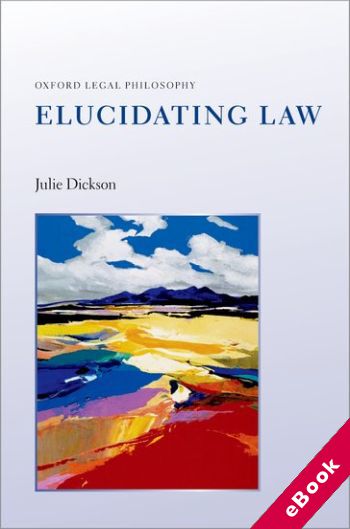
The device(s) you use to access the eBook content must be authorized with an Adobe ID before you download the product otherwise it will fail to register correctly.
For further information see https://www.wildy.com/ebook-formats
Once the order is confirmed an automated e-mail will be sent to you to allow you to download the eBook.
All eBooks are supplied firm sale and cannot be returned. If you believe there is a fault with your eBook then contact us on ebooks@wildy.com and we will help in resolving the issue. This does not affect your statutory rights.
What are the aims of legal philosophy? Which questions should it seek to address? How should legal philosophers approach and engage with their subject-matter, and what constraints are incumbent on them as they do so? What are the criteria of success of theories of law, and how do we know if they have been met? Can there be progress in legal philosophy?
In Elucidating Law, Julie Dickson addresses these and other questions concerning the methodology, or the philosophy, of legal philosophy and offers her own distinctive response to them. The book advocates that legal philosophers should espouse an approach that Dickson terms 'Indirectly Evaluative Legal Philosophy.' This distinctive approach can facilitate legal philosophers' understanding of aspects of the nature of law, whilst avoiding prematurely or inappropriately regarding law as inherently morally valuable. Law is a powerful, systemic, and institutionalized social tool. It should be understood in a manner appropriate to its character.